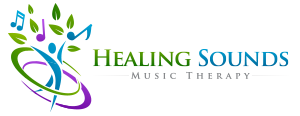Medication Compliance
A couple of weeks ago I asked the followers of my Facebook page for suggestions on what they’d like to read about in future blog posts. One of the first suggestions was medication compliance, so here it is!
Medication Compliance
Let me start off by saying that this issue is bigger than it initially sounds, so I’m going to stick with a focused approach and stay on the topic of managing to take prescribed medications regularly. We could certainly go off on several tangents related to medication in general (is it necessary? and if so, when?), the culture of medicating our problems (true? false? both?), and on and on. But those are blog posts for another day. Today we’re sticking with compliance issues, and that’s something everyone has dealt with at one time or another if you’ve ever been prescribed medication.
Most often I hear this complaint from my private clients when their treating physician gives them a prescription. They don’t like the side effects, or they don’t like how the medicine makes them feel. Maybe they struggle with paying for the prescription, or they simply don’t like the idea of having to take a pill to “fix” whatever is going wrong. They really don’t like the idea that something is “wrong” with them, especially if it requires they take medication on a regular basis. That means they’re weak and unable to handle life, right?
Is medication the *only* answer?
Let me put something out there that might seem unconventional. Just bear with me a minute here….. For years now I’ve taken a much broader view of health than is typically taken by our society and culture. Health encompasses the entire, whole person’s being. All of it– physical, mental, emotional, spiritual, the whole ball of wax. Those areas all work together to create a healthy, or unhealthy, human being. When we consider treating a problem that’s occurring, it’s helpful to consider how that problem is affecting *all* those areas– not just the area in which it’s happening.
For example, if I start having regular headaches every afternoon, instead of simply taking some Advil and resuming my day I need to stop and think about what might be causing those daily headaches. Am I overly stressed? Not eating correctly? Losing sleep? Have poor posture? I might try meditating first to relieve the pain, doing some light stretching/yoga poses, deep breathing exercises, or going for a walk around the block. Perhaps I’m simply dehydrated and need to drink more water, adjust my nutrients at lunchtime, or cut back on morning caffeine.
This is a simple example, but it serves to illustrate the point that many factors can go into solving a health issue. Sometimes medication is necessary to keep us healthy and feeling our best. There are numerous examples of medical conditions that require daily medication– think of high cholesterol, diabetes, heart conditions, arthritis, depression, anxiety.
The bottom line…
It’s important to take medication as prescribed by your doctor. But it’s also important to do what we can to help ourselves in non-medical areas. We can learn ways to manage our stress and anxiety. We can educate ourselves on better nutrition and create exercise habits. We can talk to a trusted friend or therapist to help work through particularly troublesome issues. We can discover holistic ways of helping ourselves because we all need help sometimes for something.
If you’re curious about how music therapy and GIM might fit into the holistic health picture, contact me anytime. I’m always happy to answer questions!





